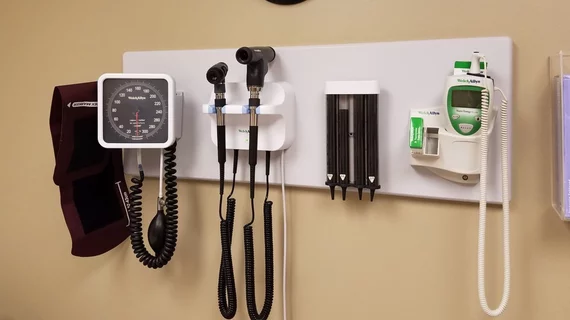Researchers have demonstrated the use of machine learning to predict suicides in a general population, achieving good accuracy by including data from routine health checkups.
In a study slated for publication in the December edition of the Journal of Psychiatric Research, the scientists, all from Gachon University in South Korea, suggest their model might help screen and prevent suicide as part of standard primary-care practice.
Corresponding author Kyoung-Sae Na and colleagues used a random forest algorithm to train their model on checkup data from more than 372,000 individuals.
They cross-validated the training set five times using death-certificate data, then measured the model’s performance using a separate test set not included in the training.
The team found their model had accuracy of 78.8% at one-year follow-up and of 75.4% at an overall follow-up period of varying lengths.
Importantly, the model was highly accurate at identifying non-suicides, notching a negative predictive value of 0.999% for both follow-up durations.
In their discussion the authors cite a prior study that looked at more than 800,000 individuals over a 10-year period but had poor accuracy. The weak point there, the authors of the present study state, was reliance on data obtained mostly from insurance claims.
“Because suicide occurs as a complex interaction of various factors such as demographic, biological and psychosocial variables, and mental illness, it is necessary to design a predictive model that includes these variables,” they write.
Na et al. suggest their inclusion of some suicide-predictive data gleanable from checkup reports was decisive in yielding a predictive model that could, “on the one hand, enable further screening of subjects on a more precise scale, and on the other hand, lay the foundation for developing effective intervention strategies in these subjects.”
The authors further suggest their model would be especially helpful in regions of the world in which mental illness is heavily stigmatized and mental healthcare is thus assiduously avoided.
Their home country is one such place—and has one of the highest suicide rates in the world, they note.
By comparison, the U.S. population largely embraces mental healthcare. Citing prior research, Na and colleagues point out that two-thirds of individuals who die by suicide in the U.S. seek mental health services in the year before death and 30% have a record of psychiatric hospitalization or ER visits.
“In such a socio-cultural environment, it would be more efficient to focus on high-risk groups of people having mental illnesses or a history of suicide attempts,” Na and colleagues write.

